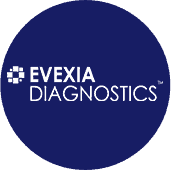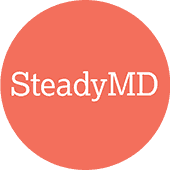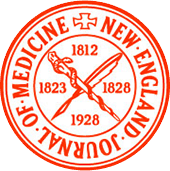The increasing prevalence of Alzheimer’s in our society makes it so that almost everyone can say they know someone with it, whether a family member, friend, or colleague. However, despite how common Alzheimer’s is, there is still a lot about it which is unknown.
Research into Alzheimer’s disease is immense and constantly growing, with new discoveries being made all the time regarding its causes, progression, and potential methods of treatment.
What is Alzheimer’s?
Alzheimer’s is a disease that impacts memory, behavior, and thinking abilities. While memory problems are a typical aspect of aging, the extent of memory loss experienced by those with Alzheimer’s is not normal.
It is the most common cause of dementia, accounting for 60-80% of dementia cases. Dementia and Alzheimer’s are often mixed up and used interchangeably, but dementia is the term for symptoms of memory loss and other cognitive abilities, whereas Alzheimer’s is the disease that causes it.
Alzheimer’s is a progressive disease, meaning it worsens over time and the dementia symptoms become more extreme over the years. Those with early-stage Alzheimer’s often experience only mild memory loss, but those in its late stages can no longer carry on a conversation or respond to their environment.
There is, unfortunately, no cure for Alzheimer’s disease. However, current treatment can slow the progression of Alzheimer’s and lessen the impact of its symptoms, improving the quality of life of those with Alzheimer’s.
Risk Factors
The greatest risk factor for Alzheimer’s disease is increasing age, with most people diagnosed with Alzheimer’s over the age of 65.
However, although much less common, those under the age of 65 can develop Alzheimer’s. In this case, it is called younger-onset or early-onset Alzheimer’s.
Genetics are yet another risk factor for Alzheimer’s, which means having a family member who had Alzheimer’s increases your chance of developing the disease. Additionally, both early-onset and late-onset Alzheimer’s have separate genetic components.
The complete list of risk factors for Alzheimer’s disease includes:
- age
- family history
- genetics
- head injury
- conditions that damage the heart and blood vessels (e.g., heart disease, stroke, diabetes)
- high cholesterol
- high blood pressure
New Research on Combatting Cognitive Degeneration
Most research for Alzheimer’s focuses on determining what exactly causes it, as there is still a significant amount unknown about the development of this disease.
Scientists speculate that a few different factors can cause Alzheimer’s, including age-related changes in the brain and genetic, lifestyle, and environmental factors. However, the impact of these factors on Alzheimer’s development can vary from person to person.
Identifying The Cause of Alzheimer’s
Alzheimer’s is characterized by brain changes, including amyloid plaque and neurofibrillary tangles. These changes then lead to a loss in neurons and connections between neurons, which results in cognitive degeneration.
Some of the age-related changes the brain experiences which can contribute to Alzheimer’s development include:
- atrophy of the brain
- vascular damage
- inflammation
- free radical production
- breakdown of energy production within cells.
However, a 2021 study made a breakthrough in Alzheimer’s research by discovering the role of amyloid-beta proteins in Alzheimer’s development. The research found that when the amyloid-beta proteins produced in the liver combined with fats and traveled to the brain, they interfered with the brain’s blood vessel function.
This then causes a dysfunction in the blood-brain barrier, which allows the protein-fat complexes to leak from the blood into the brain, causing inflammation. This inflammation was also associated with degeneration in the brain cells of the test subjects.
While this research was performed on animal models, and future studies on humans are necessary, this understanding of the amyloid-beta-fat complex on brain capillaries can lead to medical options that treat Alzheimer’s or slow down its progression.
Treatments Combatting Cognitive Degeneration
There is currently only one medication approved to treat Alzheimer’s that modifies the disease itself. Those with Alzheimer’s commonly have brain lesions composed of amyloid plaque, and Aducanumab is a type of immunotherapy that reduces the amyloid plaque by targeting the protein beta-amyloid. However, clinical studies of this medication have only been conducted on people with early-stage Alzheimer’s, so research is still undergoing to determine its ability to affect someone’s rate of cognitive decline over time.
There are other medications approved to address the symptoms of more severe Alzheimer’s cases, but Aducanumab is the first to address the underlying causes of the disease.
Diet and Lifestyle Factors Impacting Alzheimer’s Development
Years before the first symptom of Alzheimer’s appears, the brain begins undergoing changes. Knowing this allows for a window where the disease can be delayed or prevented entirely. Scientists suspect that there may be many ways to help during this time, including lifestyle changes, medications, or a combination of the two. The exciting thing is that, unlike other risk factors for Alzheimer’s, such as age and genetics, this is one area that you have control over.
Direct and Indirect Effects of Diet
Since the research surrounding diet and Alzheimer’s is still ongoing, scientists can only speculate on how diet can affect the progression and development of the disease. Some hypothesize that some foods affect biological mechanisms such as inflammation and oxidative stress, which are fundamental aspects of Alzheimer’s.
Yet another theory is that diet indirectly affects Alzheimer’s development by influencing and addressing other Alzheimer’s risk factors, such as heart disease, obesity, and diabetes. Thus, focusing on a diet and lifestyle that reduces the risk of the above conditions can also help to prevent the development of Alzheimer’s.
The Mediterranean Diet
One diet which has shown promising evidence is the Mediterranean diet, which emphasizes:
- vegetables
- fruits
- legumes
- whole grains
- unsaturated fats (e.g., olive oil)
- fish and other seafood
In addition to emphasizing the above foods, the Mediterranean diet also limits the amount of eggs, red meat, and sweets.
This diet, in particular, is recommended for the risk reduction of heart disease because of its focus on heart-healthy foods. Because of this, and because of the anti-inflammatory nature of these foods, it may help prevent Alzheimer’s directly (by combatting inflammation) or indirectly (by reducing heart disease risk).
As you can see, there are many potential ways in which someone’s diet and lifestyle can influence the development of Alzheimer’s disease. While research is still underway to verify or dismiss any of these methods, the fact remains that focusing on a healthy diet and lifestyle will do no harm to the body and may potentially help in this area.
Key Takeaways
It’s estimated that 6.5 million Americans aged 65 and older are living with Alzheimer’s, a statistic that only continues to grow. Despite this prevalence, there is still a considerable amount unknown about Alzheimer’s, although new research is unearthed frequently.
Recent research focuses on determining the cause of Alzheimer’s, which can play a significant role in developing treatments and preventions. Additionally, there is currently one medication that works to modify Alzheimer’s itself, which is an exciting step up from the medications that only treated the symptoms.
The most significant risk factors for Alzheimer’s are age and genetics. However, diet and lifestyle may also play a role in its development and prevention, which is why they should be a focus for those who want to protect their brain from cognitive degeneration.
References
- What is Alzheimer’s?. (2022). Retrieved 28 May 2022, from https://www.alz.org/alzheimers-dementia/what-is-alzheimers
- 2022 Alzheimer’s Disease Facts and Figures. (2022). https://www.alz.org/media/documents/alzheimers-facts-and-figures.pdf
- Lam, V., Takechi, R., Hackett, M., Francis, R., Bynevelt, M., & Celliers, L. et al. (2021). Synthesis of human amyloid restricted to liver results in an Alzheimer disease–like neurodegenerative phenotype. PLOS Biology, 19(9), e3001358. doi: 10.1371/journal.pbio.3001358
- How Is Alzheimer’s Disease Treated?. (2022). Retrieved 28 May 2022, from https://www.nia.nih.gov/health/how-alzheimers-disease-treated
- What Do We Know About Diet and Prevention of Alzheimer’s Disease?. (2022). Retrieved 28 May 2022, from https://www.nia.nih.gov/health/what-do-we-know-about-diet-and-prevention-alzheimers-disease
- What Causes Alzheimer’s Disease?. (2022). Retrieved 27 May 2022, from https://www.nia.nih.gov/health/what-causes-alzheimers-disease
- Mendez, M. (2019). Early-onset Alzheimer Disease and Its Variants. CONTINUUM: Lifelong Learning In Neurology, 25(1), 34-51. doi: 10.1212/con.0000000000000687
Disclaimer: This information is being provided to you for educational and informational purposes only. It is being provided to educate you about how to take care of your body and as a self-help tool for your own use so that you can reach your own health goals. It is not intended to treat or cure any specific illness and is not to replace the guidance provided by your own medical practitioner. This information is to be used at your own risk based on your own judgment. If you suspect you have a medical problem, we urge you to take appropriate action by seeking medical attention.










































